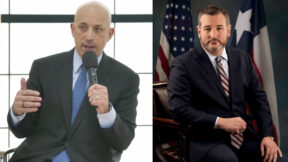Welcome to the Golden Age of Email Scandals
Earlier this year, a juror in a high-profile case came forward with a shocking allegation: after reaching a verdict, her peers conspired to cover up her dissent and to develop an untrue representation of how their decisions were reached. As evidence, she presented a number of emails between the jurors. The New York Times carried the story that Monday on its front page, below the fold; CNN hosted the emails on its site.
The problem was, however, that the story didn’tt hold up. Each of the eleven other jurors swore under oath (something the original complainant refused to do) that her version of events was erroneous, that the emails were out of context and misrepresentative. The Times ran their follow-up story on a Saturday, on page A18.
It takes no imagination to see how this story has echoes in the current environment. The Journolist emails, of course, and Drudge’s speculative front page story yesterday about “improper contact” between Google and the Administration. The absolution of the scientists in the “Climategate” incident, similarly maligned for selective emails, has also been criticized for lacking follow-up from the media outlets that trumpeted the original accusations.
Here, I’ll admit my bias. I was one of the eleven jurors; an excerpt of one of my emails appeared in that front page Times article. And, after many affidavits back and forth, the court has not yet ruled on the solitary juror’s original claims. But as I said, the story echoes, this week in particular.
We may have entered a golden age of email scandals. There are a number of reasons that emails, in this moment, are a tool ripe for employment – or exploitation – in politics, the law, and relationships.
Email is still new.
In the context of human history, obviously. But even in the context of communications.
Think about how it differs from older forms of communication. There’s the immediacy, of course, but there’s also the simplicity of archiving it. One’s desk drawers don’t have to overflow with old correspondence – it just sits there, on your desktop or in your organization’s backup files, waiting for someone to search “Weigel” or “die in a fire.” And as it travels across the internet, it often does so without encryption. The old saw about email being like a postcard that every mailman can read has an element of truth.
Here’s another way in which it is different than older forms of communication. There’s an implied letterhead on every email sent from a company or organization, that little trailing domain after the @ symbol. If you send an email from an army.mil domain, you are sending an email from the Army. From foxnews.com or from nytimes.com – those emails can be interpreted as though you are acting on behalf of those companies.
The end result will probably be less candor, and perhaps less immediacy, in emailed communications. When this happens, it will spell the end of this golden age.
But that candor and immediacy will transfer (and has transferred) to other media – instant messaging, texts, BBMs – where the same problems will soon start to crop up. In the legal case I mentioned at the outset, a text message was used in an affidavit responding to the isolated juror’s claims. In two years time, I’m going to re-release this post, doing a find-and-replace for “email” and “text”.
An individual email is often just an excerpt of a conversation.
What Andrew Breitbart was to the Sherrod video, the Daily Caller is to “Journolist”. Each broadcasts only the most incendiary parts of a discussion, with all of the subtlety of tossing a grenade.
It is rare that a stand-alone, one-off email will be of much interest. Usually, those emails that elicit a furor are part of an ongoing conversation between the sender and recipient.
Presenting only part of a discussion to make a political or personal point may be effective over the short-term, but over the long-term the audience is owed the full context for the conversation in order to fully assess its impact.
Contrast email in this regard with, oh, I don’t know, voice recordings. In addition to the overhead in recording and storing a conversation, surreptitiously or not, a snippet of recorded conversation demands release of what preceded and followed it. RadarOnline couldn’t release only Mel Gibson’s furious invectives, they had to release the whole thing, because they knew people wouldn’t accept only his side as representative. Yet, for some reason with email, they do.
Voice recordings do have an advantage over email in this regard: emotion. Were Gibson’s words type-written, it’s certain they would lack the emotional power they carry when you hear them in his familiar voice. But again, that lack of emotion can make email a tool for triggering scandal.
There was a sketch comedy show about a decade ago that had a skit in which a witness at a trial was examined. He confessed to the crime with heavy sarcasm to the amusement of the jury and audience. But when the prosecution had his words read back, the cold statement (something like “Oh yeah, I killed him.”) shifted meaning.
It was a comedy sketch, but we’ve all had that experience – an email being misinterpreted when the tone of it is misunderstood. Now imagine that email being read by someone who you’d never intended to read it, perhaps someone looking for evidence of wrong-doing. Perhaps someone with the improbable name of “Tucker”.
The Freedom of Information Act just got a lot more robust.
It used to be that FOIA requests took time to compile. When it became law in 1967, responding to a request was not trivial. Even if the respondent wanted to do so as quickly as possible, it still took a long time to look through old documents and filings.
Not so anymore. While still more complicated than searching one’s hard drive, it’s much easier for the government to respond to even the most far-reaching of requests. This is very much for the good of democracy, of course – but, as in the Drudge-linked example above, it’s also much easier for those trying to rake muck. With access to a wide range of communication, it’s easy to succumb to confirmation bias. (Lawrence Lessig wrote an excellent essay on the dangers of too much openness last year that is worth revisiting.)
The moral of the story is this: as much as we hold the Administration to account for overreacting in Shirley Sherrod’s case, we should exercise the same restraint when the next email scandal breaks. I say this in part from self-interest, of course, but the point remains. Our relationship with email is still evolving, and we live in a moment in which it can easily be misunderstood. We owe it to ourselves to take isolated emails out of context with a grain of salt – no matter the source, no matter the topic.
We’ll only see more revelations like those of recent months. It is up to all of us to assure that we understand why we’re seeing them.
Or to get everyone to give a sworn statement about it. I can go either way.
This is an opinion piece. The views expressed in this article are those of just the author.





Comments
↓ Scroll down for comments ↓